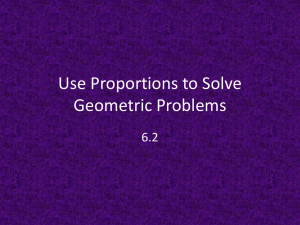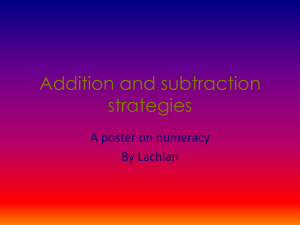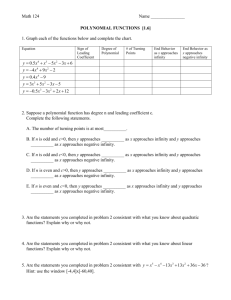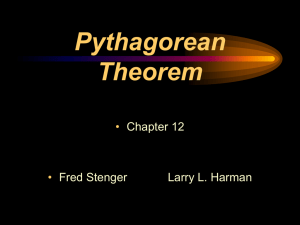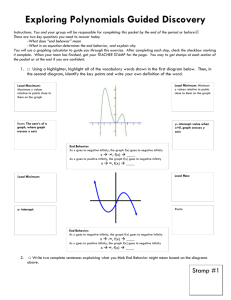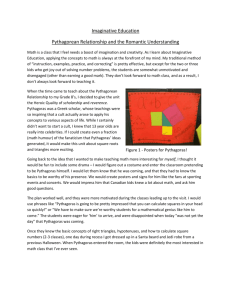Zero: The Biography of a Dangerous Idea
advertisement
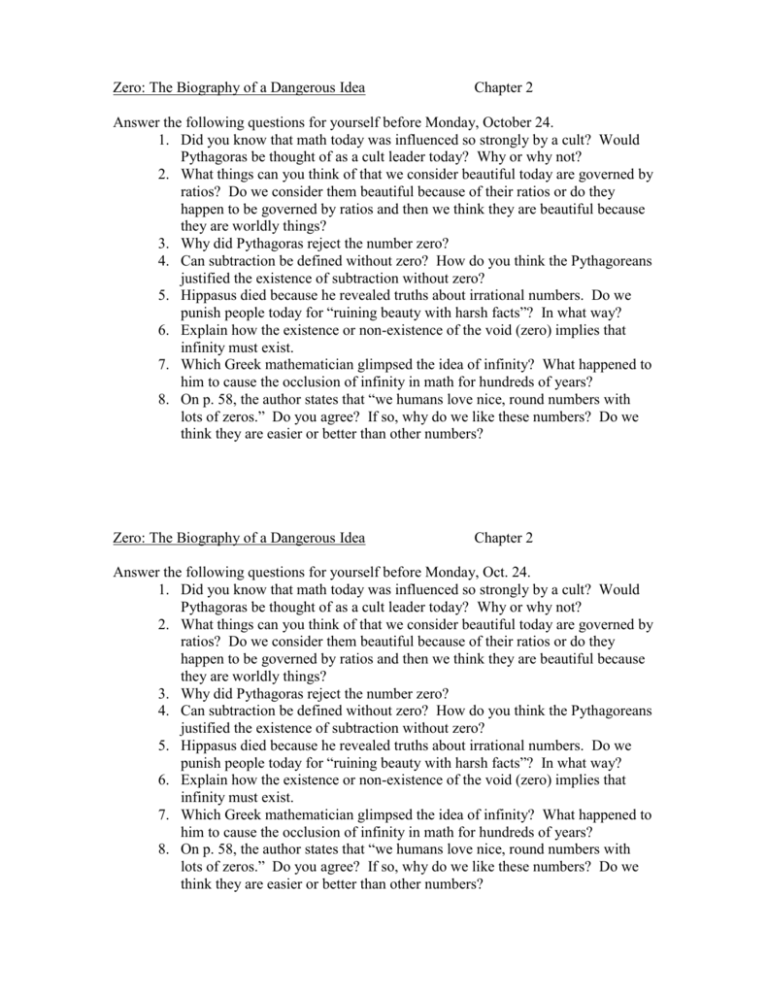
Zero: The Biography of a Dangerous Idea Chapter 2 Answer the following questions for yourself before Monday, October 24. 1. Did you know that math today was influenced so strongly by a cult? Would Pythagoras be thought of as a cult leader today? Why or why not? 2. What things can you think of that we consider beautiful today are governed by ratios? Do we consider them beautiful because of their ratios or do they happen to be governed by ratios and then we think they are beautiful because they are worldly things? 3. Why did Pythagoras reject the number zero? 4. Can subtraction be defined without zero? How do you think the Pythagoreans justified the existence of subtraction without zero? 5. Hippasus died because he revealed truths about irrational numbers. Do we punish people today for “ruining beauty with harsh facts”? In what way? 6. Explain how the existence or non-existence of the void (zero) implies that infinity must exist. 7. Which Greek mathematician glimpsed the idea of infinity? What happened to him to cause the occlusion of infinity in math for hundreds of years? 8. On p. 58, the author states that “we humans love nice, round numbers with lots of zeros.” Do you agree? If so, why do we like these numbers? Do we think they are easier or better than other numbers? Zero: The Biography of a Dangerous Idea Chapter 2 Answer the following questions for yourself before Monday, Oct. 24. 1. Did you know that math today was influenced so strongly by a cult? Would Pythagoras be thought of as a cult leader today? Why or why not? 2. What things can you think of that we consider beautiful today are governed by ratios? Do we consider them beautiful because of their ratios or do they happen to be governed by ratios and then we think they are beautiful because they are worldly things? 3. Why did Pythagoras reject the number zero? 4. Can subtraction be defined without zero? How do you think the Pythagoreans justified the existence of subtraction without zero? 5. Hippasus died because he revealed truths about irrational numbers. Do we punish people today for “ruining beauty with harsh facts”? In what way? 6. Explain how the existence or non-existence of the void (zero) implies that infinity must exist. 7. Which Greek mathematician glimpsed the idea of infinity? What happened to him to cause the occlusion of infinity in math for hundreds of years? 8. On p. 58, the author states that “we humans love nice, round numbers with lots of zeros.” Do you agree? If so, why do we like these numbers? Do we think they are easier or better than other numbers?
